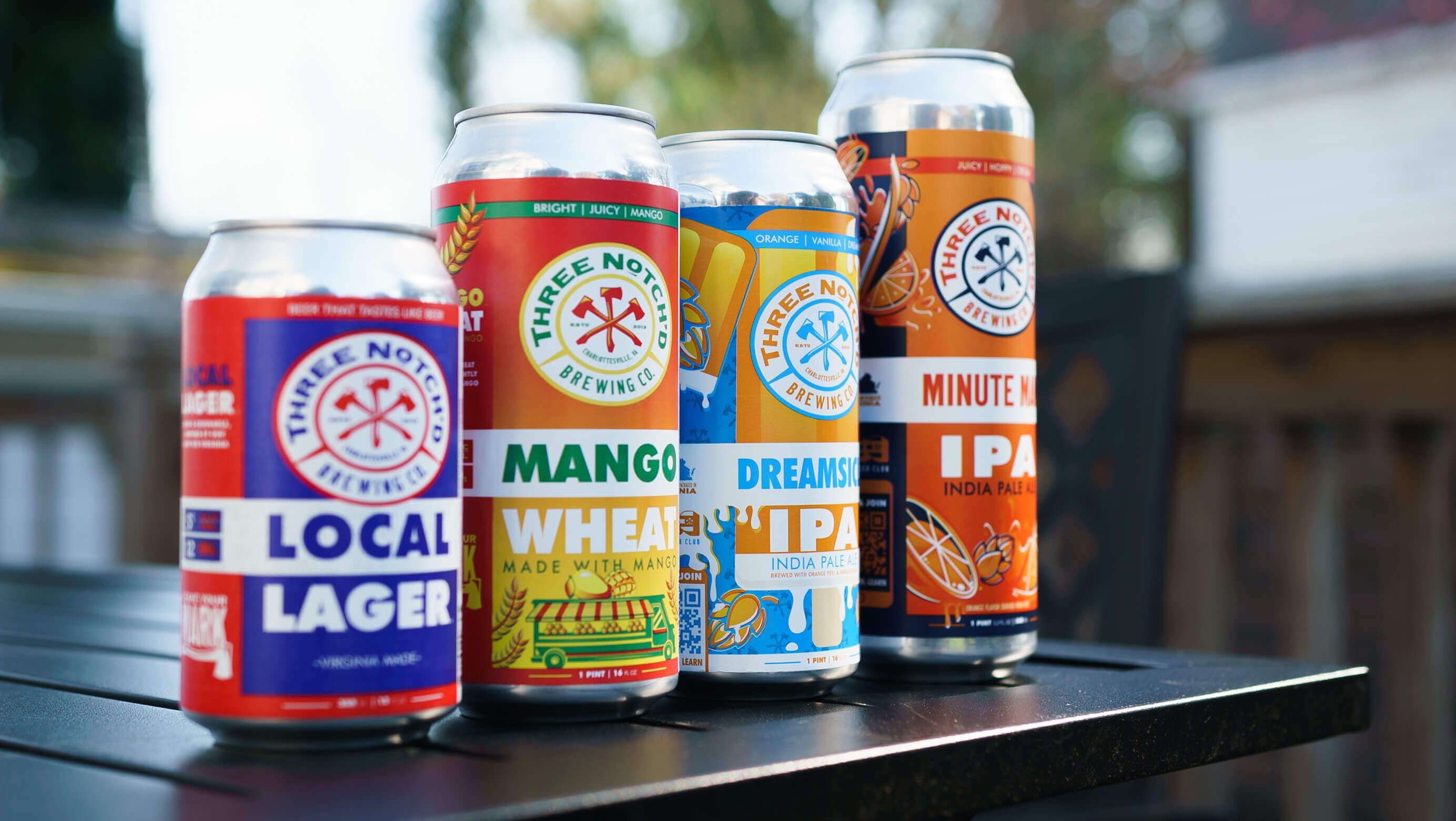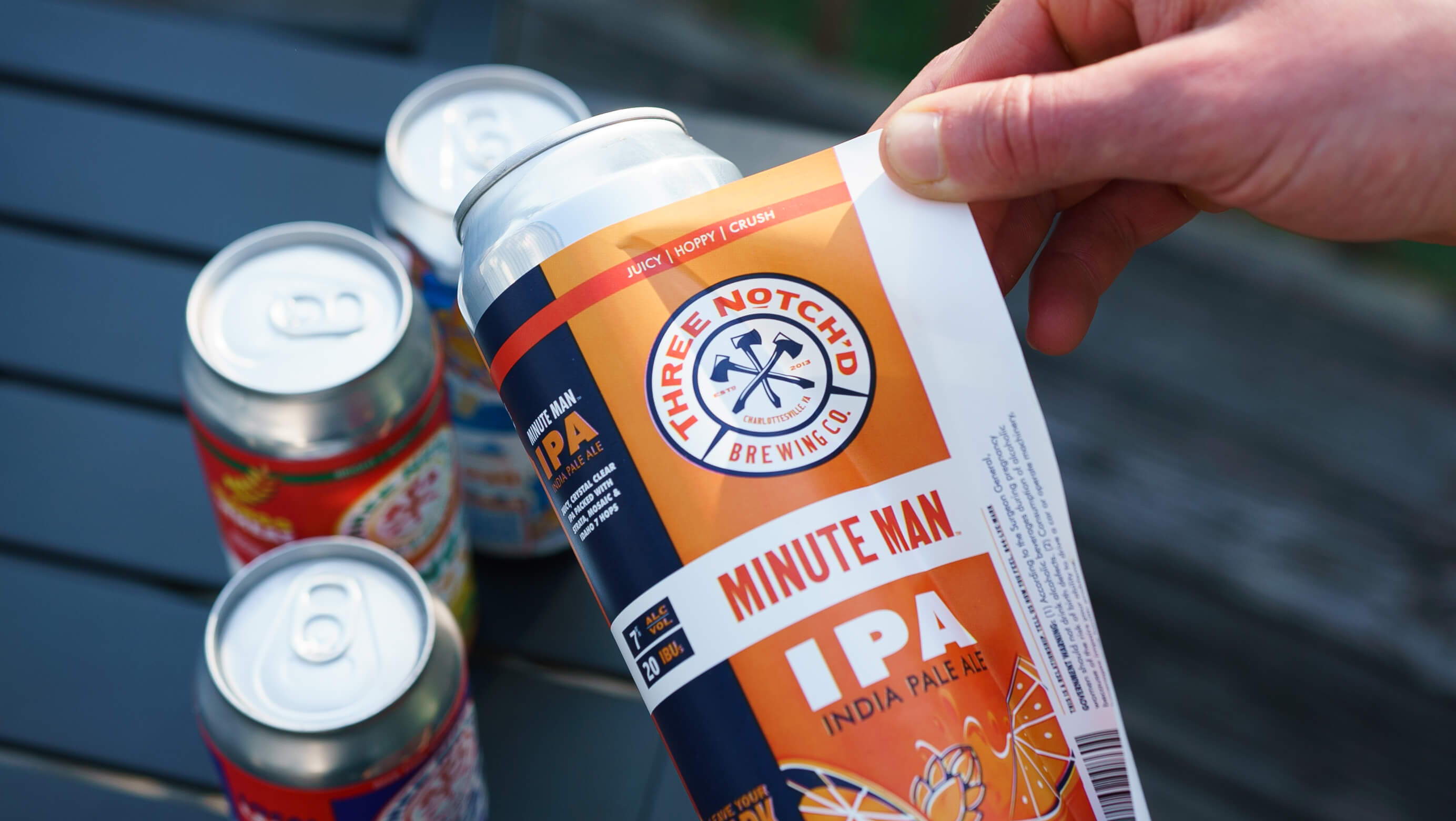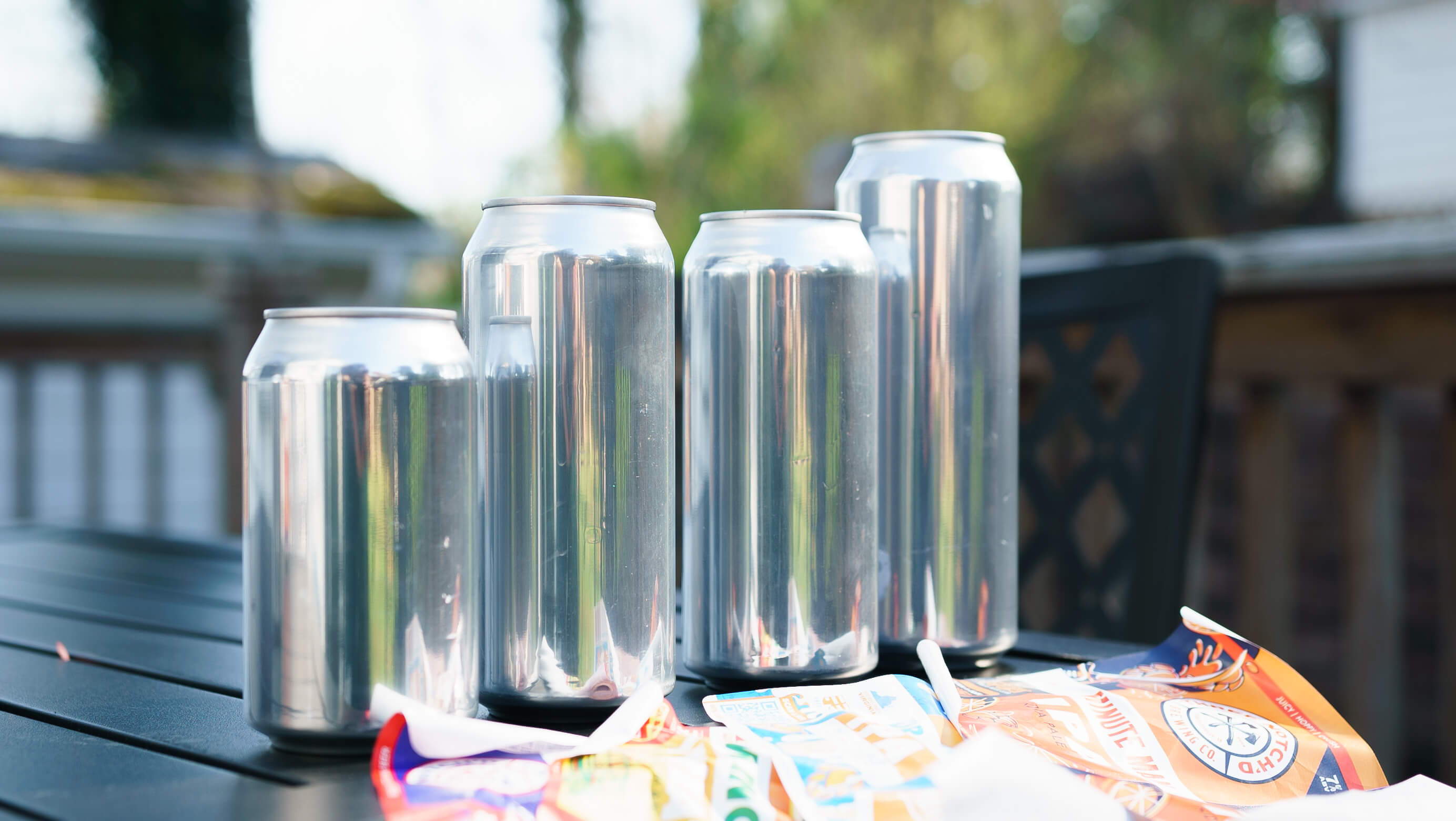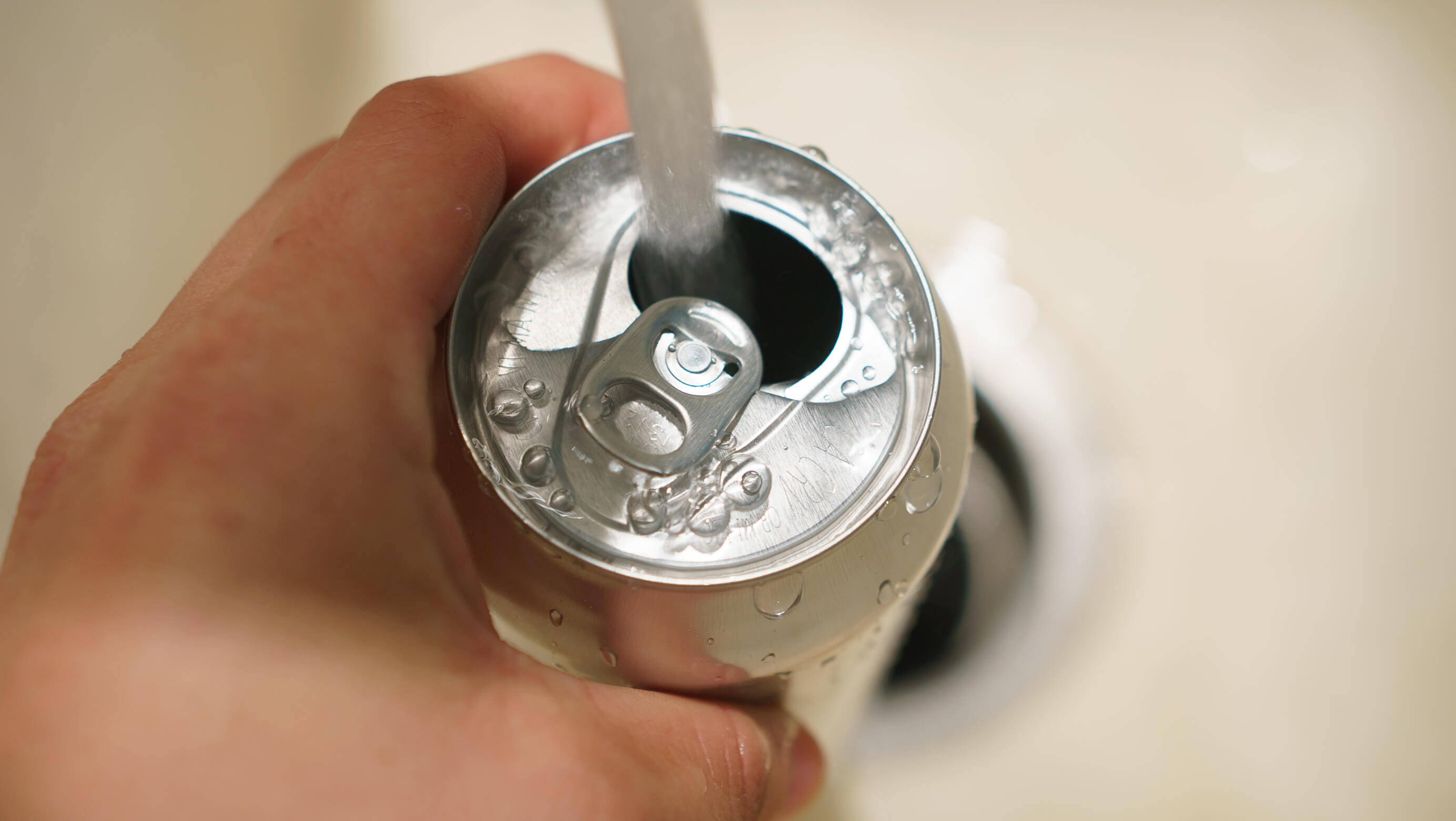Three Notch'd Brewing Company
how to recycle your
Beer cans

Aluminum Beer Cans are INFINITELY Recyclable!
An aluminum beer can is recycled and turned back into a new can in just 60 DAYS! According to the Aluminum Association and Can Manufacturers Institute, 46.7 BILLION cans were recycled by the industry in 2020.
How can you help make sure your "infinitely recyclable" beer can has the best odds of making it to it's new life? Here are a few tips!

Remove the Label ♻️
While beer cans themselves are recyclable, the labels on them can cause issues during the recycling process. When beer cans are recycled, they are melted down and turned into new aluminum products. However, the labels on the cans, which are typically made of a different type of material than the aluminum cans themselves, can cause impurities to be introduced into the melting process, resulting in lower quality recycled aluminum. This can also cause issues with the machinery used to process the aluminum, potentially damaging equipment.
Additionally, many recycling facilities have strict guidelines on what materials they will accept, and leaving labels on beer cans may cause them to be rejected.

♻️ Don't Crush Your Cans
When aluminum cans are crushed, they can become more difficult to sort at recycling facilities. This is because crushed cans may take on a different shape and size, making it harder for machines to distinguish them from other materials. As a result, they may not be properly sorted and could end up being sent to the wrong processing area or even contaminating other recycling streams.
Additionally, the process of crushing cans can create sharp edges, which can be dangerous for recycling workers and potentially damage recycling equipment.

Rinse Before Recycling ♻️
Rinsing your cans before recycling them is important for several reasons. Firstly, it helps to remove any leftover drink residue from the can. When cans are recycled, they are melted down and formed into new products. If there is any leftover residue in the can, it can cause contamination and affect the quality of the recycled material.
Drink residue left in cans may also attract insects and pests, which can be a problem at home and at recycling facilities. Furthermore, dirty or contaminated cans may be rejected by recycling facilities, which can result in them ending up in landfills. By rinsing your cans, you can ensure that they meet the cleanliness standards required for recycling, helping to reduce waste and protect the environment.
